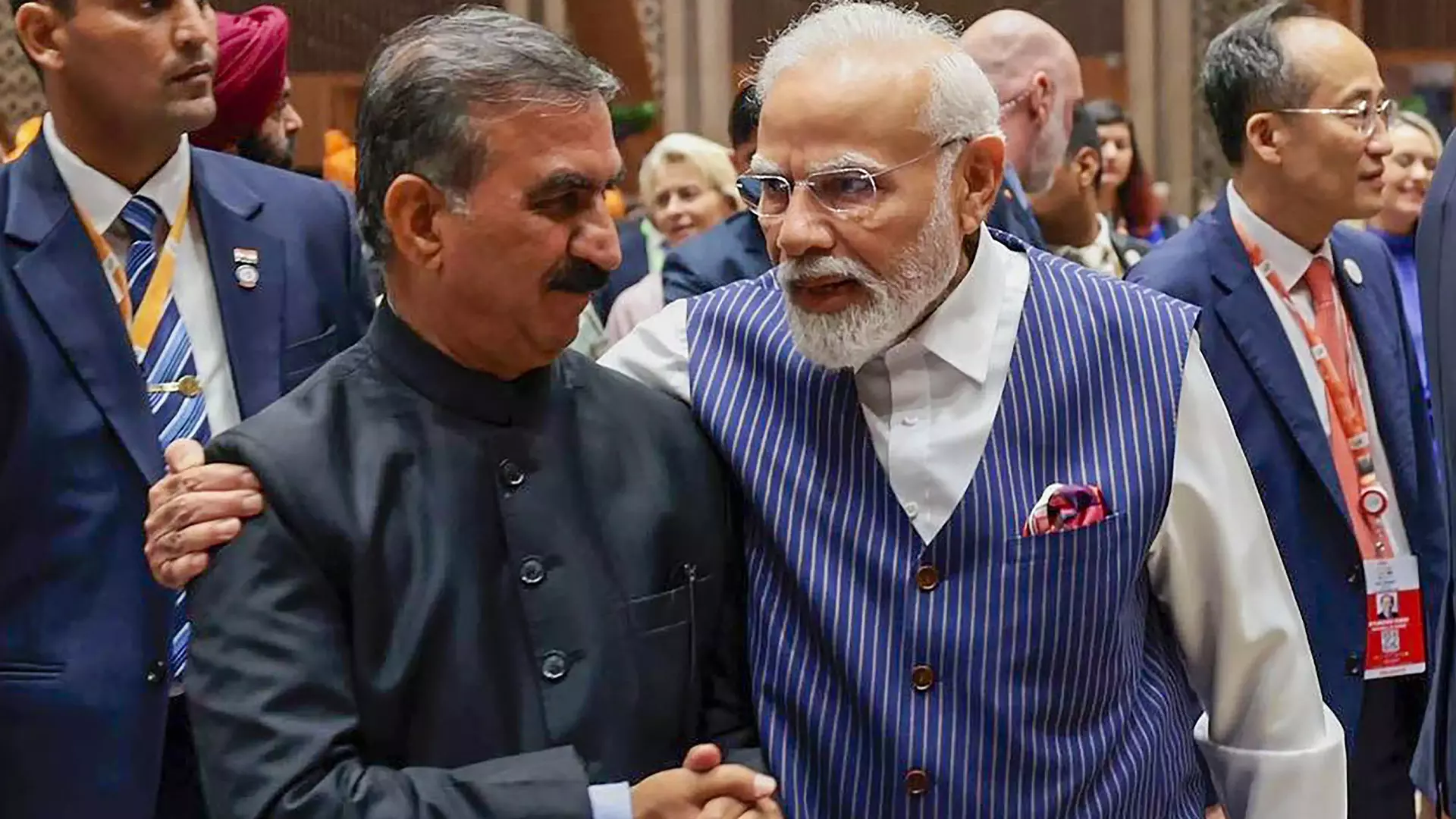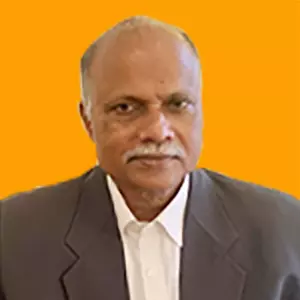
- Home
- India
- World
- Premium
- THE FEDERAL SPECIAL
- Analysis
- States
- Perspective
- Videos
- Sports
- Education
- Entertainment
- Elections
- Features
- Health
- Business
- Series
- In memoriam: Sheikh Mujibur Rahman
- Bishnoi's Men
- NEET TANGLE
- Economy Series
- Earth Day
- Kashmir’s Frozen Turbulence
- India@75
- The legend of Ramjanmabhoomi
- Liberalisation@30
- How to tame a dragon
- Celebrating biodiversity
- Farm Matters
- 50 days of solitude
- Bringing Migrants Home
- Budget 2020
- Jharkhand Votes
- The Federal Investigates
- The Federal Impact
- Vanishing Sand
- Gandhi @ 150
- Andhra Today
- Field report
- Operation Gulmarg
- Pandemic @1 Mn in India
- The Federal Year-End
- The Zero Year
- Science
- Brand studio
- Newsletter
- Elections 2024
- Events
- Home
- IndiaIndia
- World
- Analysis
- StatesStates
- PerspectivePerspective
- VideosVideos
- Sports
- Education
- Entertainment
- ElectionsElections
- Features
- Health
- BusinessBusiness
- Premium
- Loading...
Premium - Events

The only concrete outcome of the summit has been to make the African Union a member of the grouping
The New Delhi summit of the G20 has been like the peacock, splendour come alive visually, but deficient in its defining quality: the ability to fly, in the case of the bird, and adopting coordinated solutions to global problems, in the case of the gathering of heads of the world’s most significant governments. The only concrete outcome of the Delhi G20 summit has been to make the African Union a member of the grouping, like the European Union.
This is not a problem with the Delhi summit per se. After the initial few years of recommending implementable, and often implemented, measures to stabilize the global financial system in the wake of the 2007-09 North Atlantic financial crisis touted as the Global Financial Crisis, G20 summits have tended to be high on talk and low on delivery. In the Pittsburgh summit of 2009, the G20 resolved to phase out fossil fuel subsidies. At the Delhi summit, too, that resolve has been reiterated.
Resolutions calling for ending subsidies are easy to pass, but politically tough and inconvenient to implement. New Delhi is right now increasing its subsidy on cooking gas, a fossil fuel, to placate inflation-stung voters in the run-up to crucial elections.
Bar set low
Expectations from G20 summits have sunk so low that the ability of the Delhi summit to produce a leaders’ declaration is itself treated as an achievement.
The expansion of the World Bank that some commentators make much of in the Delhi Declaration is actually a retreat from the original vision of reforming the governance of the institution to better reflect the contemporary economic heft of nations, instead of retaining the US veto that was instituted in the immediate wake of World War II, when that country dominated the world. In any case, the US Congress holds the key to increasing the World Bank’s capital and, given the divided government that is more the rule than the exception in that country, it might not be advisable to hold your breath waiting for the Bank’s capital to go up.
On climate change, the Delhi Declaration skirts the one solution that can prevent the world warming by 1.5 degree Celsius above the level reached prior to the industrial revolution, during which the world began to burn fossil fuels at scale. That solution is carbon dioxide removal, or CDR, principally by the rich countries. The Sixth Assessment Report of the UN says that humanity injected 2,400 Giga tonnes (Gt) of CO2 into the atmosphere since 1850, of which 58% was emitted before 1990.
This means that the rich countries of today were the principal culprits in this regard. If they suck out from the atmosphere as much CO2 as they had individually released into the atmosphere while growing rich, we would get net zero emissions in short order, and halt climate change before the world warms dangerously. CDR fails to find any mention in the Delhi Declaration, although US President Joe Biden’s Inflation Reduction Act is doling out subsidies worth billions of dollars to companies that perfect CDR technologies.
Biofuels alliance
Yet another initiative that New Delhi takes credit for is a new Global Biofuels Alliance. Biofuels are problematic unless they are made solely from digesting organic waste. The use of farming resources to produce ethanol has the potential to divert cropped areas from food crops or to divert potential food to fuel. Subsidising corn for the production of ethanol in the US ended up making chicken more expensive for consumers. Chicken is one of nature’s most efficient converters of starch into protein fit for human consumption.
Biofuels competed with chickenfeed for corn, raising the price of chickenfeed, and of chicken and eggs. Further, unless cultivation is rigorously controlled to avoid the use of subsidised water and fertilizer, biofuels could end up consuming more energy than they produce.
The emphasis on green hydrogen in the context of renewable energy and on small modular reactors (SMRs) in the context of nuclear energy is, indeed, welcome. But green hydrogen as a solution to the intermittency of solar or wind power, and SMRs as a cost-efficient substitute for site-specific, custom-built nuclear plants, are both self-evident techno-economic solutions that do not particularly call for endorsement by world leaders.
That applies to digital public infrastructure and regulation of cryptocurrency as well. Given the rift between the two biggest leaders in artificial intelligence, the US and China, on the tech, it is difficult to see much cooperation forthcoming on creating a global governance framework for AI.
Status quo on Ukraine
Some commentators have made much of the Delhi Declaration’s omission of an explicit stand on Ukraine. That seeming elision of this controversial topic is the result of some drafting sleight of hand. The Delhi Declaration says that “we reiterated our national positions and resolutions adopted at the UN Security Council and the UN General Assembly (A/RES/ES-11/1 and A/RES/ES-11/6)…”. These resolutions deplore Russia’s invasion of Ukraine. Reiteration of national positions means that the Western bloc of nations sticks with its condemnation of Russia and arming of Ukraine, while India persists with refusal to condemn Russia. Rather than break any new ground on Ukraine, the Delhi summit of the G20 reiterates the status quo.
So, where exactly has the Delhi G20 summit made a difference? In convincing Prime Minister Narendra Modi’s domestic audience that the world’s leaders assembled in the Indian capital thanks to his charisma and leadership, rather than because India happens to hold the presidency of the grouping that rotates among its members annually. Seeing the Indian PM play host to the world’s leaders in New Delhi has made many Indian chests puff out a little.
Shall we exhale that extra intake of air by raising a toast to the African Union? Cheers!
(TK Arun is a senior journalist based in New Delhi.)
(The Federal seeks to present views and opinions from all sides of the spectrum. The information, ideas or opinions in the articles are of the author and do not necessarily reflect the views of The Federal.)


